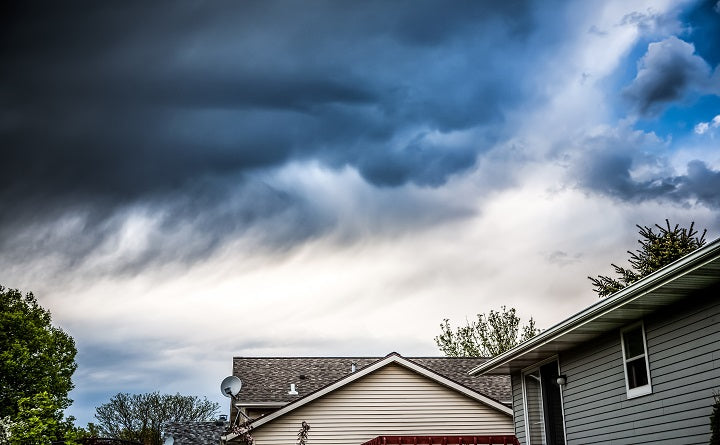Regardless of where in the United States you live, this time of year is notorious for pop-up severe storms which can cause flooding, power outages, and hail or wind damage. As a homeowner, it’s your responsibility to keep your property safe and protected from storm damage.
One of your family’s vital appliances during the spring and summer is the air conditioner. If the power goes out, you may be without the use of your cooling system for hours or days at a time. Here are a few tips to help you prepare your air conditioner before, during, and after a storm.
Worried you’ll lose electricity?
If there’s the threat of a power outage, turn your thermostat down a few degrees to “pre-cool” your home. This will help to keep your home cool in case you lose power. Also, close your blinds, curtains, and doors to help keep the cool air inside so your family can stay as comfortable as possible.
Seeing a lot of lightning?
If you notice a lot of lightning during a storm, turn your air conditioner ‘OFF.’ Electrical surges are common during severe thunderstorms, and your home’s air conditioner could fall victim to a surge and suffer serious damage.
Notice a lot of wind damage?
After a storm, if you’ve noticed there’s a lot of debris that blew into your yard, check your air conditioner to be sure there aren’t any branches, leaves, or other items covering the unit.
Has your air conditioner been flooded?
If a flash flooding situation has occurred in your area, it’s important to keep power shut OFF to your unit until the waters subside. Contact a professional to inspect your cooling system before using it again. Excess moisture can flood small openings in your system. If it’s left sitting stagnant in the unit, it could lead to rusting.
AC back on but noticing problems?
If you’ve turned your air conditioner back on following a severe storm and have noticed that the unit isn’t working as it should, contact a professional as soon as possible to diagnose and treat the issue. Some problems are worse than others, such as a refrigerant leak which could be releasing dangerous materials.
Prepare an Emergency Plan
In addition to doing what you can to prevent damage to your air conditioner before, during, and after a storm, it’s wise to develop and practice an emergency severe weather plan with your family. Take into consideration the types of severe weather emergencies that could happen in your area, such as hurricanes and/or tornadoes, and plan accordingly with your household.
Want to learn more about protecting your home during severe weather?
For more information on preparing your home for spring storms, visit Ready.gov.


